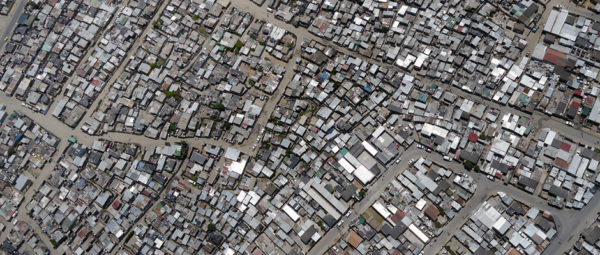Developing Research Capacity for Inclusive Urban Governance
This blog by Glyn Williams presents an overview of the ESRC-funded project Developing Research Capacity for Inclusive Urban Governance: a Sheffield-Witwatersrand PhD Training Partnership, and the opportunity presented by planning education to help address many of the key challenges facing South African cities today.

Our project, Developing Research Capacity for Inclusive Urban Governance: a Sheffield-Witwatersrand PhD Training Partnership, aims to develop research capacity in urban governance in the Global South, a brief that makes it rather different from many other projects within the Urban Transformations portfolio. It does so through a PhD exchange partnership between the University of the Witwatersrand’s School of Planning and Architecture and the University of Sheffield’s Department of Urban Studies and Planning, two departments with active PhD schools within the field of urban governance in their respective countries. From the outset, we wanted to use this project as a springboard for enhancing our research training in a way that would outlast the project itself, and to do so by drawing on the mutual strengths of both Departments.
When we started working with our doctoral students in 2016, it quickly became clear what these strengths were. Many of our Wits cohort are doing their PhDs mid-career within professions directly related to urban change, governance and advocacy: they (and their supervisors) are often directly embedded within the contexts they are studying, with empirical case-study work directly linking to their own professional practice and institutional affiliations. As such, they have a keen sense of the politics of their research in its broadest sense: the complications of positionality, speaking out, and using the insights of their research to effect change beyond the academy. The Sheffield cohort, by comparison, often share experiences based around the internationalisation of their research. With personal backgrounds and research locations scattered across the globe, their challenges are often to translate intensely local knowledge and experience into terms that have wider resonance. Their supervisors will have some understanding and experience of the contexts their doctoral students are working in, but more often than not are ‘outsiders’ to these places. As such, they are partners in helping them in the acts of translation that are necessary to communicate this research to broader audiences.
There are, of course, counter-examples within our cohorts, but these two central problems – of negotiating the context-specific politics of research, and in translating the insights gained from it to a wider, global audience – are common to all good research in urban governance. Pooling our experience as PhD students and supervisors in both institutions to address them has been central to the exchanges, which have run as a biannual series of intensive visits, each of around a fortnight’s duration. This format of extended, group-based exchanges has allowed us all to experiment with a range of activities and training environments, including public lectures, masterclasses with experienced researchers, peer-to-peer discussion of research, and intensive workshops. Each visit has focused on a particular aspect of the research process, such as undertaking qualitative analysis or developing strategies to aid writing. Throughout, we have aimed to place research praxis at the centre of each thematically-focused visit, prompting visiting speakers and workshop participants alike to critically reflect on the craft and practices of their work, areas that are vital to understanding how good-quality research is produced, but which are often under-emphasised within methodological textbooks.

Within these exchange visits, the time spent together has been important in building mutual trust and understanding among the participants, but also in letting ideas develop (or unpicking problems with a project’s progress) through forms of collective input not provided within a ‘normal’ PhD supervision. We hope that this has been valuable for the students that have participated directly in the visits’ core activities, a changing and evolving group which has now gone beyond 30 students across our institutions. It certainly has been richly rewarding for us as a group of academics running the sessions: although we all have extended prior experience of PhD supervision, the exchange programme has provided a unique opportunity to reflect on the training we give, the nature of the challenges PhD students face, and to test out new strategies to support them.
The task facing us beyond our final student exchange, which focuses on the ethical challenges of research on urban governance, is to turn the insights we have gained from this experience into lasting development of doctoral training in both our institutions. Some of this will come from unbundling the activities of the exchange visits themselves and turning these into materials that can be used within shorter format-events, such as one day workshops. Some of it will come from using our PhDs’ accounts of their own engagement within the exchange programme to reflect on how doctoral researchers learn, and embedding this within the training of our supervisors. Finally, however, we hope that in some form or other, the practice of holding the PhD exchange visits will be repeated. This is in part due to its immediate contribution to ongoing research agendas: the deeper understanding of each other’s research is an invaluable starting point for future collaborative projects across our institutions involving both staff and PhD students. Even more important, however, has been has been the fact that the visits have made us take the time to listen to and work with our doctoral researchers intensively, and within an international partnership that make us look at their training afresh. This time can all too easily squeezed out of higher education, given the escalating pressures of taught programmes and academics’ own research projects. Spending it on the development of research training is, however, one of the greatest opportunities we have to ‘add value’ to our respective institutions.